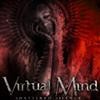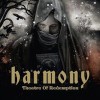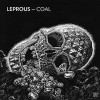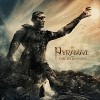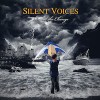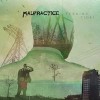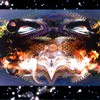Limited edition embossed digipak with one bonus track."It was the friendly split heard round the world: two bands – same logo, same history….huh? Two Rhapsody’s? Would they sound the same? What does Rhapsody even sound like without Luca? All those questions are now about to be answered as Rhapsody of Fire (RoF) will finally present the response album to the overwhelmingly cinematic masterpiece spewed by Luca Turilli’s Rhapsody (LTR) in 2012. In the interim, there is a new record company (AFM), the first North American Tour and a Hess in….a Hess out. The split with the former HolyHell guitarist has left Roberto De Micheli as the lone guitarist, which turns out to be the best move of all. Meanwhile, Fabio Lione has been the busiest and a singer for hire – guest starring on a multitude of releases, including a long stint with Brazil giants Angra – and permanently joining Hollow Haze on top of Vision Divine. Fans wondered, when would that long awaited response album from Alex Staropoli be heard? The time is now and “Dark Wings of Eternity” is upon us. Right, right….you want the verdict! Well this album will definitely distinguish the band from LTR, but at the same time all of the key RoF qualities remain.Is it a win? Absolutely! Alex Staropoli takes RoF in a more organic and metallic direction, which on the first listen may come across sounding “under produced” when compared to the grandiose “overly produced” previous albums. Successive listens unveil the beauty of “Dark Wings of Steel,” an album that favors drama over theatric, proving there really is room for two Rhapsodys without picking sides.Luca’s vision of Rhapsody is the cinematic grandiose direction – a grand production of sight and sound, dazzling and spectacular. Alex Staropoli has side stepped and stripped down Rhapsody of Fire just a bit towards a purer “heavy metal” direction. Fans might take that statement as a step backward, but keep in mind, having two bands that are exactly the same would be silly and certainly wouldn’t help either. The guitar sound is more prominent, darker, and little less speedy as in the past (save for two of the album’s tracks). The choirs and choruses that fans have come to expect remain intact, as well as those building and sweeping melodies, written to perfectly balance the strengths of Fabio’s voice. Clearly, this is Staropoli’s band and he makes his presence known in a huge way (more on that later), and Roberto’s work is absolutely brilliant and cannot go unnoticed! His riffs are engaging and his solos are masterful, in many ways exceeding Luca’s own (which Turilli would freely admit). Many people do not realize that Roberto was actually in Thundercross in 1993, the band that would change its name to the famous Rhapsody in 1995 (though he did not play on the “Land of Immortals” demo of 1994).For any true fan of the band, approaching “Dark Wings” brings a certain level of both excitement and concern, especially considering Luca’s absence, the band’s back catalog and history, and LTR's post-split opening salvo that only raised the bar. It is nearly impossible for any fan of these bands to simply turn off the past and not instantly begin with comparisons. By giving “Dark Wings of Eternity” room to fly and breathe, I guarantee with each successive spin any concerns will quickly fade. In the end, you will find that RoF really isn’t all that far from where it already was! As soon as "Vis Divina" (intro) and opening track “Rising From Tragic Flames” begin you will notice the hallmarks – choirs, speedy riffs, Fabio – are all there, but the sound, especially the drums, is more natural. Staropoli’s keyboard play is much more modern and flamboyant juxtaposed to De Micheli’s neoclassical style. When that choir bridges you to Fabio’s first verse, you quickly realize this is classic RoF.For purposes of keeping this review from becoming more like a novel, lets group the tracks into “quicker” and “slower.” History has proven that Rhapsody of Fire is more often than not associated with quicker tunes, which are the ones that tend to be prominent among the fans. “Rising From Tragic Flames” is akin to classics like “Unholy Warcry” as the choir and speed is strikingly similar. “Silver Lake of Tears” presents a fierce and angry Fabio on the verses, which will be just what many fans have been hoping for (and no…we aren’t talking “Reign of Terror” angry). The title track is slightly more mid-paced with a De Micheli riff that is just as lethal as the speed. The song has one of the coolest guitar vs. keyboard solo battles, something that happens in multiple tracks on the album. “A Tale Of Magic” is an up-tempo half-speed with one of the most memorable choruses on the release. It’s a challenge to pick and outright favorite, but for now the pendulum swings in favor of “Tears of Pain,” with its simple, though highly fetching, riff that just draws more anger from Fabio’s voice.As for the “slower” side, which encompasses ballads and mid-paced tracks, the crop includes the building layers of “Fly to Crystal Skies” - galloping into the chorus along the bass pedals of Alex Holzwarth and the stunning ballad “Custode Di Pace”- a song like so many other greats from RoF and another pedestal for Fabio. “Angel of Light” showcases Fabio’s current strengths - the upper mid vibrato – matched in perfection only by Alessandro Conti. The song sports another one of the best choruses, as well as a slow Manowar type gallop as the song progresses. One of the real standouts in this category is “My Sacrifice,” which rises like a mountain, each level progressively heavier, ranging from near ballad from the onset, to mid-paced bass centric while pausing on the bridge with a uniquely Italian acoustic flair before cascading into the chorus.As mentioned earlier, a word about Alex Staropoli. For starters, I’ll admit that I had my concerns about his “flying solo” as a writer and those concerns were dispelled by “Dark Wings.” His play is much more flamboyant and modern than on previous releases, including a number of keyboard solos that battle back and forth with Roberto’s guitar. It’s an exciting element that really enhances the album. If I had one stylistic gripe, it would be that the keyboards are so prominent in the mix that they suffocate the guitar riffs at times (examples include the opening riff to the title track and “A Tale Of Magic.”). In those heavier tunes, the riffs could easily drive the melody alone.In summary, “Dark Wings of Steel” is a well written and fantastic effort. It demands attentive and successive listens before its true beauty is revealed. Changes are both bold and subtle, especially the more organic sound. The mix meter tilts with Staropoli, which throttles the riffs at times, but the quality of play is superb. The song writing is top notch, leaning more dramatic and less theatrical to distinguish the band from LTR, and Fabio shines not only with his voice, but also in his role as lyric writer. Enough cannot be said about Roberto, who has taken over and stepped up in the absence of Luca. For me, this album is a testament to his play. “Dark Wings of Steel” will not replace the classics, but it will find its place among them. The future is bright for one of heavy metal’s veteran acts." - Metal Underground
$16.00

